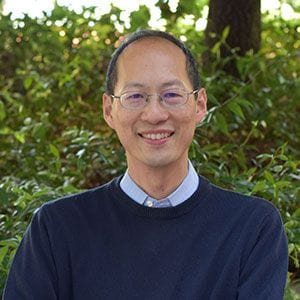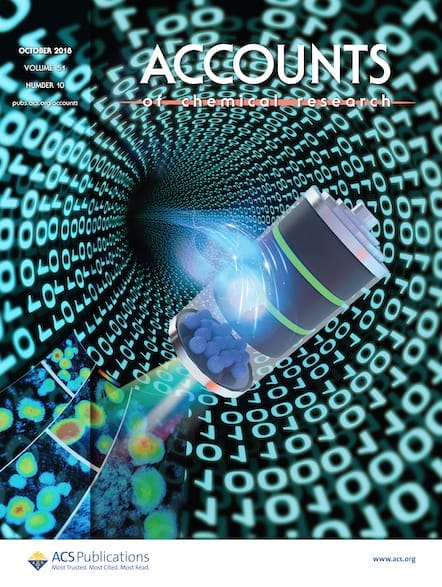In this interview, Dr. Chang discusses the current research that excites him the most, the qualities of an excellent Account article, and what he hopes to bring to the journal as Editor-in-Chief.

Dr. Christopher J. Chang is a professor of chemistry and molecular and cell biology at the University of California, Berkeley, a faculty scientist at Lawrence Berkeley National Laboratory, and an adjunct professor at the University of California, San Francisco. Professor Chang has served for nine years as a founding Senior Editor and then Deputy Editor for ACS Central Science, as well as on numerous Editorial Advisory Boards for ACS journals, including Accounts of Chemical Research. He has received recognition with prestigious awards throughout his career, including the Guggenheim Fellowship in 2021, Humboldt Research Award in 2020, Blavatnik National Award in Chemistry in 2015, and the ACS Nobel Laureate Signature Award in Graduate Education in 2013.

We recently spoke with Dr. Chang to learn more about his plans as Editor-in-Chief of Accounts of Chemical Research.
What does it mean to you to be the Editor-in-Chief of Accounts of Chemical Research?
It’s an honor to be selected to take on this service role to the broader chemical community. People are what drive science forward and Accounts occupies a unique place in chemistry as a venue that brings a personal perspective to the science, as it teaches us the context of how that science came into being. For that reason, Accounts has been a favorite venue of mine to publish in and review for, and I’m excited to lead the journal in the next cycle of its evolution. I want to thank Dr. Cindy Burrows for her wonderful leadership of the journal over the past decade and I look forward to building on the existing strengths of the journal and expanding it into new directions.
What does a good Account provide its readers?
To me, a good Account gives a first-person perspective on the inspiration and initiation, current progress, and future outlook on a topic of primary research in that person’s lab, written in that person’s voice as the leader of that team or individual research. Because the author has had a first-hand experience in the primary research, Accounts provides a special type of scientific article that goes beyond a normal long or short review where there is a personal connection to the area of science presented. It should be accessible to a broad audience in chemistry (and ideally beyond), written in a way to capture the imagination and attention of early-career students yet give enough insight and technical detail to satisfy the more advanced experts in the area.
What in your own research are you particularly excited about today?
We study the chemistry of biology and energy, and one overarching goal is to understand life not only at the molecular level but at the atomic level, where several projects in the lab are converging on an idea we term as single-atom signaling. The reversible addition or subtraction of a single atom, from a transition metal engaging in metalloallostery to single oxygen marks on selected methionine sites to one-carbon metabolic units as privileged post-translational modifiers, can dramatically influence the structure and function of proteins. This work has broad implications for fundamental understanding of the elements of life from the environment to medicine.
What would you like to see more of in Accounts of Chemical Research?
In short, I’d like to see more voices. As the diversity and impact of chemistry grows, we want authors and reviewers from all over the world to participate and contribute to Accounts. We want to continue to preserve a foundation in core areas of chemistry, but we also want to emphasize chemistry as the central science and new opportunities where chemistry can impact biology, medicine, materials, physics, engineering, and energy and the environment.
How has your past experience as an Editor shaped your approach to being Editor-in-Chief of Accounts of Chemical Research?
My previous experiences as an editor, particularly with ACS Central Science, has shaped my approach of service to the community, from engagement of scientists and staff across the world to participate in the publishing process to disseminate science at a global scale, and a fair and transparent review process. As someone who is leading an academic laboratory and is a fellow author and reviewer, I want to emphasize that we are all part of the same community and publication process together.
Want the latest stories delivered to your inbox each month?

Accounts of Chemical Research
Read our latest issue. Want to contribute to this journal?